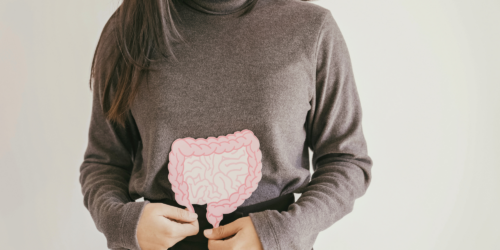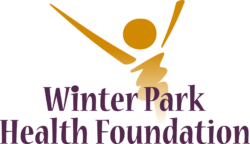August is Brain Health Month at the Center for Health & Wellbeing. To celebrate, we sat down with Beverly Engel, head of the Winter Park Health Foundation’s BrainUp program, to uncover some surprising secrets about our most important organ, bust some commonly-believed myths and dive into the latest technologies that could help you maintain your high-functioning brain, or even make it more powerful.
Center for Health & Wellbeing (CHWB): What are three things we can do to protect the health of our brains?
Beverly Engel (BE): 1. Exercise –aerobic exercise, specifically, can improve cognition, memory and attention and reduce the risk of dementia. We know that what is good for the heart is good for the brain. Pushing oneself aerobically increases blood flow and oxygen to the brain. Moreover, there is a powerful connection between physical fitness and mental health. Moderate exercise can shield you against depression and can lower your stress levels. So, start moving and sweating today! Even 45 minutes of movement a couple of times a week will have healthy brain benefits.
2. Participate in new and novel activities and challenge yourself – the brain is constantly learning. Interestingly enough, the brain does not stop developing in adulthood. Each time you challenge yourself or learn something new, the structure of your brain changes. When you pump iron, you grow new muscle fibers developing stronger muscles. The same is true for your brain. You have to exercise the brain to prevent it from atrophying. Learn something difficult, like a new language. Try something new like learning a magic trick or learn to knit. Anything you do that is new and novel helps to grow the synapses and connections in your brain. It is never too late to take on a new cognitive challenge.
3. Meditation – In recent years, research studies have praised the benefits of the various forms of meditation. The neurological benefits are not to be ignored. The practice of meditation — whether it be breath-focused work, mindfulness, yoga or similar exercises — reports a host of cognitive benefits, from an increased ability to focus, to decreased mind wandering, improved arousal levels, more positive emotions, decreased emotional reactivity to changes in grey matter in the brain to enhanced connectivity between different areas in the brain. While not a magic bullet or fool-proof remedy, meditation has been shown to help with overall psychological well-being by offering relief from anxiety and depression. If the research is correct, a few minutes of meditation in the morning or at night can be relatively beneficial to your cognitive and emotional state.
CHWB: Are there new consumer technologies we should pay close attention to as a means to improve or maintain brain health?
BE: The big talk of the day is all the brain game apps and programs available to help grow the brain. Unfortunately, research has shown that for the most part, brain game apps don’t really work in the way they are advertised. What they do is simply grow your skill in one area that is often not transferable to real-life situations. On the other hand, meditation apps which are now readily available, many of which are offered for free or for a reasonable cost, do provide the mind-body connections that benefit both your cognitive and emotional state.
Deepak Chopra and Oprah Winfrey recently launched the 21-Day Meditation Program, offering free meditations for a limited time. You can also purchase meditations through the app or through the Chopra Center Meditation website. I mention this app because people are pretty familiar with Deepak Chopra and Oprah Winfrey so that minimizes the trust factor. However, there are numerous meditation apps available and YouTube videos to help people who want to learn to meditate.
CHWB: Tell us one fact about brain health that surprises most people.
BE: According to the National Institutes of Health, “…hearing loss is one of the most common conditions affecting older and elderly adults. Approximately one in three people between the ages of 65 and 74 has hearing loss and nearly half of those older than 75 have difficulty hearing.” And according to the International Journal of Audiology, “the majority (80%) of adults aged 55–74 years who would benefit from a hearing aid, do not use them.” What does hearing have to do with the aging brain? Surprisingly, hearing loss may play a bigger role in cognitive decline than was previously thought. In fact, recent studies suggest hearing loss speeds up age-related cognitive decline.
How does hearing loss affect the brain? There are several reasons but two of the most obvious are: 1) If your brain has to put in a lot of effort or strain to comprehend what you are hearing, resources are being taken away from the brain that would otherwise be used for encoding what is being heard into your memory. In other words, if you have to work too hard to listen, your brain has less power to do other cognitively demanding tasks; 2) Being hard of hearing often socially isolates people from others. When you have to struggle to converse, you may be less likely to want to socialize in groups. Being socially isolated has long been recognized as a risk factor for cognitive decline and dementia.
While links have been established between hearing loss and dementia, more research needs to be done. In the meantime, it makes sense that if you suspect your hearing is not up to par, get it checked out and treated. If you have hearing aids, wear them. In the long run, your ears may help stave off cognitive decline.
Article reference here.
CHWB: What is the biggest myth or misconception people have about brain health?
BE: Every day you see the ads on television imploring you to take this or that over-the-counter pill to boost your mental clarity. The question is are the claims that these supplements sharpen your thinking and improve your focus really true? There is not a lot of evidence that these supplements work.
Because of a loop hole in the law, dietary supplements, such as those that claim to support brain health, do not have to pass the rigorous FDA processes to ensure they are effective and safe. So, while these supplements are available for purchase, the fact that they have not been tested in the same way as prescribed medications means there is not strong evidence that the claims they make to support or help memory are true.
Memory loss is scary which is why people often reach for quick fixes. Fish oils (omega-3 fatty acids) that you get from eating salmon are linked to a lower risk of dementia. But similar benefits are not linked to the taking of fish oil supplements. B-vitamins such as folate, B6 and B12 and ginkgo biloba are also cited as brain healthy supplements, but the research has proven otherwise. So, buyers beware! Instead of purchasing supplements that don’t deliver what they promise, try eating a healthier diet. Find out more about healthy eating and brain foods here.
Interested in learning more about brain health and testing and improving the power of yours? Join Beverly on August 22 at 10am for the free ‘Brain Games’ program at CHWB. Learn more about Brain Games and register here.
About BrainUp:
Brain Up! is a comprehensive brain education program brought to you by the Winter Park Health Foundation. It was developed in response to recent research that revealed fascinating new truths about our brains. We have long believed that the human brain is hard-wired and immutable. The latest findings prove otherwise. The scientific community can now agree that the human brain has plasticity, that brain function is shaped by environmental input and lifestyle and that brains can and will continue to develop and express late in life – but we have to work on them now. Learn more, sign up for e-news and sign the Brainifesto at BrainUpFL.org.






